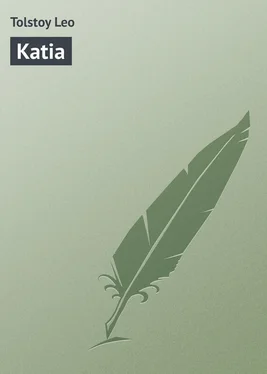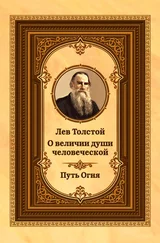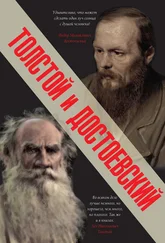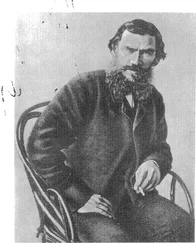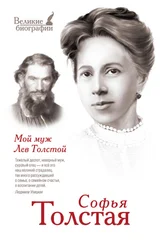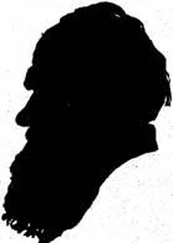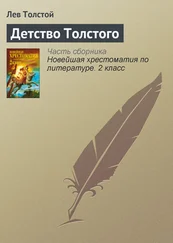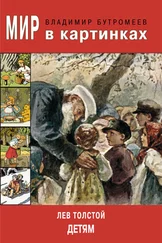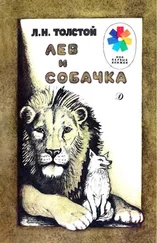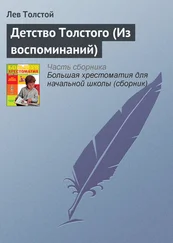Лев Толстой - Katia
Здесь есть возможность читать онлайн «Лев Толстой - Katia» весь текст электронной книги совершенно бесплатно (целиком полную версию без сокращений). В некоторых случаях можно слушать аудио, скачать через торрент в формате fb2 и присутствует краткое содержание. Издательство: Иностранный паблик, Жанр: Русская классическая проза, на английском языке. Описание произведения, (предисловие) а так же отзывы посетителей доступны на портале библиотеки ЛибКат.
- Название:Katia
- Автор:
- Издательство:Иностранный паблик
- Жанр:
- Год:неизвестен
- ISBN:нет данных
- Рейтинг книги:3 / 5. Голосов: 1
-
Избранное:Добавить в избранное
- Отзывы:
-
Ваша оценка:
- 60
- 1
- 2
- 3
- 4
- 5
Katia: краткое содержание, описание и аннотация
Предлагаем к чтению аннотацию, описание, краткое содержание или предисловие (зависит от того, что написал сам автор книги «Katia»). Если вы не нашли необходимую информацию о книге — напишите в комментариях, мы постараемся отыскать её.
Katia — читать онлайн бесплатно полную книгу (весь текст) целиком
Ниже представлен текст книги, разбитый по страницам. Система сохранения места последней прочитанной страницы, позволяет с удобством читать онлайн бесплатно книгу «Katia», без необходимости каждый раз заново искать на чём Вы остановились. Поставьте закладку, и сможете в любой момент перейти на страницу, на которой закончили чтение.
Интервал:
Закладка:
Tatiana Semenovna, his mother, with whom I now became more fully acquainted, was a woman of the old school, starched and stiff, and a severe mistress. Sergius loved her, not only from duty as a son, but also with the sentiment of a man who saw in her the best, the most intelligent, the tenderest, and the most amiable woman in the world. Tatiana had always been cordial and kind to us, particularly to me, and she was delighted that her son should marry; but as soon as I became betrothed to him it appeared to me that she wished to make me feel that he might have made a better match, and that I ought never to forget the fact. I perfectly understood her, and was entirely of her opinion.
During these last two weeks, Sergius and I saw each other every day; he always dined with us and remained until midnight; but, though he often told me – and I knew he was telling the truth – that he could not now live without me, yet he never spent the whole day with me, and even, after a fashion, continued to attend to his business matters. Our outward relations, up to the very time of our marriage, were exactly what they had been; we still said “ you ” to each other, he did not even kiss my hand, and not only did he not seek, but he actually avoided occasions of finding himself alone with me, as if he feared giving himself up too much to the great and dangerous love he bore in his heart.
All these days the weather was bad, and we spent most of them in the drawing-room; our conversations being held in the corner between the piano and the window.
“Do you know that there is one thing I have been wishing to say to you for a long time?” he said, late one evening, when we were alone in our corner. “I have been thinking of it, all the time you have been at the piano.”
“Tell me nothing, I know all,” I replied.
“Well then, we will say no more about it.”
“Oh, yes, indeed, tell me; what is it?” I asked.
“It is this. You remember me telling you that story about A. and B.?”
“As if I could help remembering that foolish story! How lucky that it has ended so…”
“A little more, and I would have destroyed my happiness with my own hand; you saved me; but the thing is, that I was not truthful with you, then; it has been on my conscience, and now I wish to tell you all.”
“Ah, please do not!”
“Do not be afraid,” he said, smiling, “it is only that I must justify myself. When I began to talk to you, I wished to debate the question.”
“Why debate?” said I, “that is never necessary.”
He looked at me in silence, then went on.
“In regard to the end of that story, – what I said to you, then, was not nonsense; clearly there was something to fear, and I was right to fear it. To receive everything from you, and give you so little! You are yet a child, yet an unexpanded flower, you love for the first time, while I…”
“Oh, yes, tell me the truth!” I exclaimed. But all at once I was afraid of his answer. “No, do not tell me!” I added.
“Whether I have loved before? is that it?” he said, instantly divining my thought. “It is easy to tell you that. No, I have not loved. Never has such a feeling… So, do you not see how imperative it was for me to reflect, before telling you that I loved you? What am I giving you? Love, it is true…”
“Is that so little?” I asked, looking into his face.
“Yes, that is little, my darling, little for you. You have beauty and youth. Often, at night, I cannot sleep for happiness; I am incessantly thinking how we are going to live together. I have already lived much, yet it seems to me that I have but just now come to the knowledge of what makes happiness. A sweet, tranquil life, in our retired corner, with the possibility of doing good to those to whom it is so easy to do it, and who, nevertheless, are so little used to it; then work, – work, whence, you know, some profit always springs; recreation, also, nature, books, music, the affection of some congenial friend; there is my happiness, a happiness higher than I ever dreamed of. And beyond all that, a loved one like you, perhaps a family; in one word, all that a man can desire in this world!”
“Yes,” said I.
“For me, whose youth is done, yes; but for you …” he continued. “You have not yet lived; perhaps you might have wished to pursue your happiness in some other path, and in some other path perhaps you might have found it. At present it seems to you that what I speak of is indeed happiness, because you love me…”
“No, I have never desired nor liked any but this sweet home life. And you have just said precisely what I think, myself.”
He smiled.
“It seems so to you, my darling. But that is little for you. You have beauty and youth,” he repeated, thoughtfully.
I was beginning to feel provoked at seeing that he would not believe me, and that in a certain way he was reproaching me with my beauty and my youth.
“Come now, why do you love me?” I asked, rather hotly: “for my youth or for myself?”
“I do not know, but I do love,” he replied, fixing upon me an observant look, full of alluring sweetness.
I made no response, but involuntarily met his eyes. All at once, a strange thing happened to me. I ceased to see what was around me, his face itself disappeared from before me, and I could distinguish nothing but the fire of the eyes exactly opposite mine; then it seemed to me that these eyes themselves were piercing into me, then all became confused, I could no longer see anything at all, and I was obliged to half close my eyelids to free myself from the mingled sensation of joy and terror produced by this look.
Towards evening of the day previous to that appointed for our marriage, the weather cleared. After the heavy continuous rains of the summer we had the first brilliant autumnal sunset. The sky was pure, rigid, and pale. I went to sleep, happy in the thought that the next day would be bright, for our wedding. I woke in the morning with the sun upon me, and with the thought that here already was the day … as if it astonished and frightened me. I went to the garden. The sun had just risen, and was shining through the linden-trees, whose yellow leaves were floating down and strewing the paths. There was not one cloud to be seen in the cold serene sky.
“Is it possible that it is to-day?” I asked myself, not venturing to believe in my own happiness. “Is it possible that to-morrow I shall not wake here, that I shall open my eyes in that house of Nikolski, with its columns, in a place now all strange to me! Is it possible that henceforward I shall not be expecting him, shall not be going to meet him, shall not talk about him any more in the evenings, with Macha? Shall I no longer sit at the piano in our drawing-room at Pokrovski, with him beside me? Shall I no longer see him go away, and tremble with fear for him because the night is dark?” But I remembered that he had told me, the night before, that it was his last visit; and, besides, Macha had made me try on my wedding-dress. So that, by moments, I would believe, and then doubt again. Was it really true that this very day I was to begin to live with a mother-in-law, without Nadine, without old Gregory, without Macha? That at night I would not embrace my old nurse, and hear her say, making the sign of the cross, as she always did; “Good-night, my young lady?” That I would no longer hear Sonia’s lessons, or play with her, or rap on the partition wall in the morning and hear her gay laugh? Was it possible that it was really to-day that I was to become, in a measure, an alien to myself, and that a new life, realizing my hopes and my wishes, was opening before me? And was it possible that this new life, just beginning, was to be for ever? I waited impatiently for Sergius, so hard it was for me to remain alone with these thoughts. He came early, and it was only when he was actually there that I was sure that to-day I was really going to be his wife, and no longer felt frightened at the thought.
Читать дальшеИнтервал:
Закладка:
Похожие книги на «Katia»
Представляем Вашему вниманию похожие книги на «Katia» списком для выбора. Мы отобрали схожую по названию и смыслу литературу в надежде предоставить читателям больше вариантов отыскать новые, интересные, ещё непрочитанные произведения.
Обсуждение, отзывы о книге «Katia» и просто собственные мнения читателей. Оставьте ваши комментарии, напишите, что Вы думаете о произведении, его смысле или главных героях. Укажите что конкретно понравилось, а что нет, и почему Вы так считаете.
